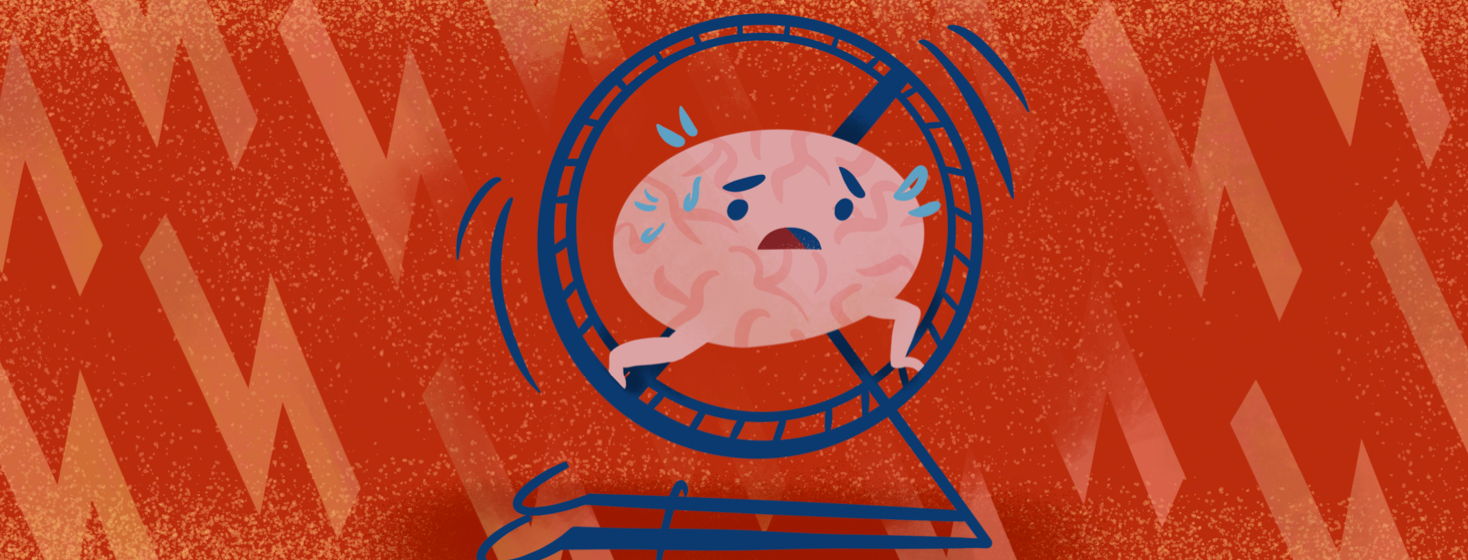What Is the Connection Between Lupus and PTSD?
Many things can affect whether a person gets lupus or not. Other health conditions are among them. One condition that can increase the risk of lupus is post-traumatic stress disorder (PTSD).
PTSD is an illness that emerges in some people who have gone through trauma. Trauma is something experienced that brings about intense dismay, fear, grief, harm, or pain. This could be abuse, an accident, a natural disaster, or other tragedies.1
How are lupus and PTSD linked?
Having PTSD can increase your chance of developing autoimmune diseases, including lupus. According to studies, autoimmune diseases occur more often in people with PTSD. Research has shown that trauma changes the immune system. In autoimmune diseases, the immune system mistakes a person's healthy cells as harmful and attacks them.2
A 2021 study looked at lupus and PTSD in a group of people in the United States. Those with lupus had a higher rate of PTSD. The study also found the chance of developing lupus was double in people who had been diagnosed with PTSD.2,3
What are the symptoms of PTSD?
Symptoms of PTSD include:1
- Anxious thoughts
- Bursts of anger
- Depressive thoughts
- Dreams or flashbacks of the trauma
- Fear
- Feeling guilty or wrong
- Forgetting details of the trauma
- Sadness
- Sleep troubles
- Shunning people, places, or things that bring the trauma to mind
- Tension
Other symptoms can occur in children and teens with PTSD. A child may cling to a parent or caregiver and regress in functions like talking and using the toilet. Teens may act out in negative ways.1
PTSD symptoms can start weeks, months, or years after a trauma occurs. They may last for 1 month or more. Symptoms can persist, resulting in chronic (long-term) PTSD.1
What increases the risk of PTSD?
Research shows certain people have an increased risk of developing PTSD after going through trauma:1
- Women
- Those who abuse drugs
- Those who have a mental illness
- Those who endured trauma as a child
Genetics also play a role in the emergence of PTSD in some people.1
People who lack the skills needed to cope with trauma are also more likely to develop PTSD. They may remain silent instead of seeking help after a traumatic experience. They may not get the medical care they need or support from family and friends.1
Certain incidents can raise the risk of PTSD as well. This includes ones involving danger and physical harm to you or a loved one. Your chance of developing PTSD can increase if you felt unprotected and unable to do anything about what happened.1
How is PTSD diagnosed and treated?
A doctor can detect PTSD based on your symptoms and history. They may prescribe antidepressants and sleep aids or suggest supplements to relieve your symptoms. They may also refer you to a mental health specialist for further treatment.1
A mental health specialist like a counselor can guide you through talk therapies. They are skilled in helping you recognize and express your feelings. They can teach you effective ways to think about what happened and respond to things that remind you of the trauma.1
Healing can take place as you go through talk therapies. The process takes time. But mental health care can reduce your symptoms and help you feel better.1
How does stress affect PTSD?
As with lupus, stress can trigger or worsen the symptoms of PTSD. Stress can also increase your chance of having anxiety and depression. Both tend to appear with PTSD.1,4
Controlling stress is vital for people with lupus and PTSD. To cope with stress:1,4
- Know what stresses you
- Pay attention to the signals that you are stressed
- Handle what you can
- Ask for help
- Take breaks
- Rest
- Do things that calm you
- Renew your mind
- Nourish your body with healthy foods and water
- Exercise
- Connect with caring family and friends
Your mental health can impact your physical health and vice versa. If you have lupus and PTSD, talk to your doctor about treatments. Seek and receive the care you need to recover from any trauma you have experienced. With help, you can feel and function better and move forward with your life.

Join the conversation